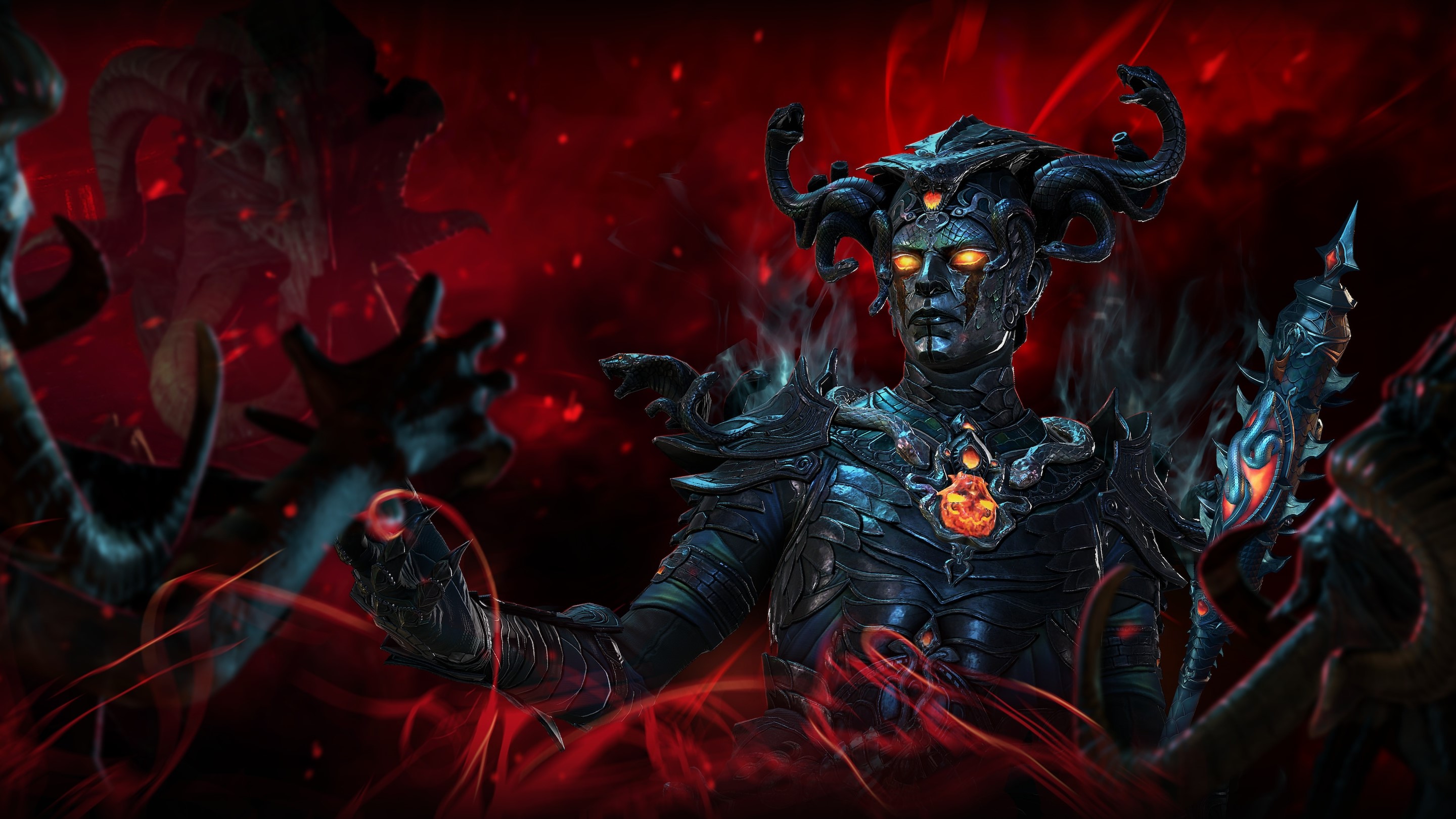Just how would a folding tablet like the Surface 'Andromeda' even work?
Seeing the Surface Hub 2 reveal offered a glimpse at Windows' dynamic multi-panel future, imagine if you could fold that display and put it in your pocket?

After watching the Surface Hub 2 reveal yesterday, I felt like I was peering into the future. Surface reveal ads have become a bit of a phenomenon unto themselves, but for some reason, I think the Hub 2 has been the most captivating for me so far, even though I'm nowhere near the target audience.
The Surface Hub 2 is a boardroom display on steroids. It features rotational capabilities, inking, seamless integration with multiple Hubs and other Surface products, and can offer full-body Skype conversations as if you were in the same room. Smart screens like this aren't exactly new, but most of them frankly suck, with weak capabilities designed to meet education department budgets. Indeed, the Hub 2 is as niche as they come, but clearly, Microsoft sees an opportunity here. Perhaps they also see a similar niche opportunity with Andromeda.
The rumored Surface "Andromeda" is the near-mythical folding phone-tablet-thing that we've been writing about for what feels like forever at this point. Numerous small leaks, hints in OS code, and patent filings seem to point towards a type of tablet, comprised of two displays that connect at the middle. Since the Surface Hub 2 runs on WCOS/CShell, in a sense, it's offering the first glimpse at a Windows built specifically with multi-display use-cases in mind, such as the folding phone. Of course, you can use multi-monitors with Windows 10 today, but it's not always seamless, nor is it designed with apps in mind, to leverage all of those displays simultaneously. Andromeda, presumably, will be.
That creates various compelling compute scenarios that really got me thinking recently, and I did some (bad) doodles on my Surface Book 2 to explore the possibilities.
Productivity
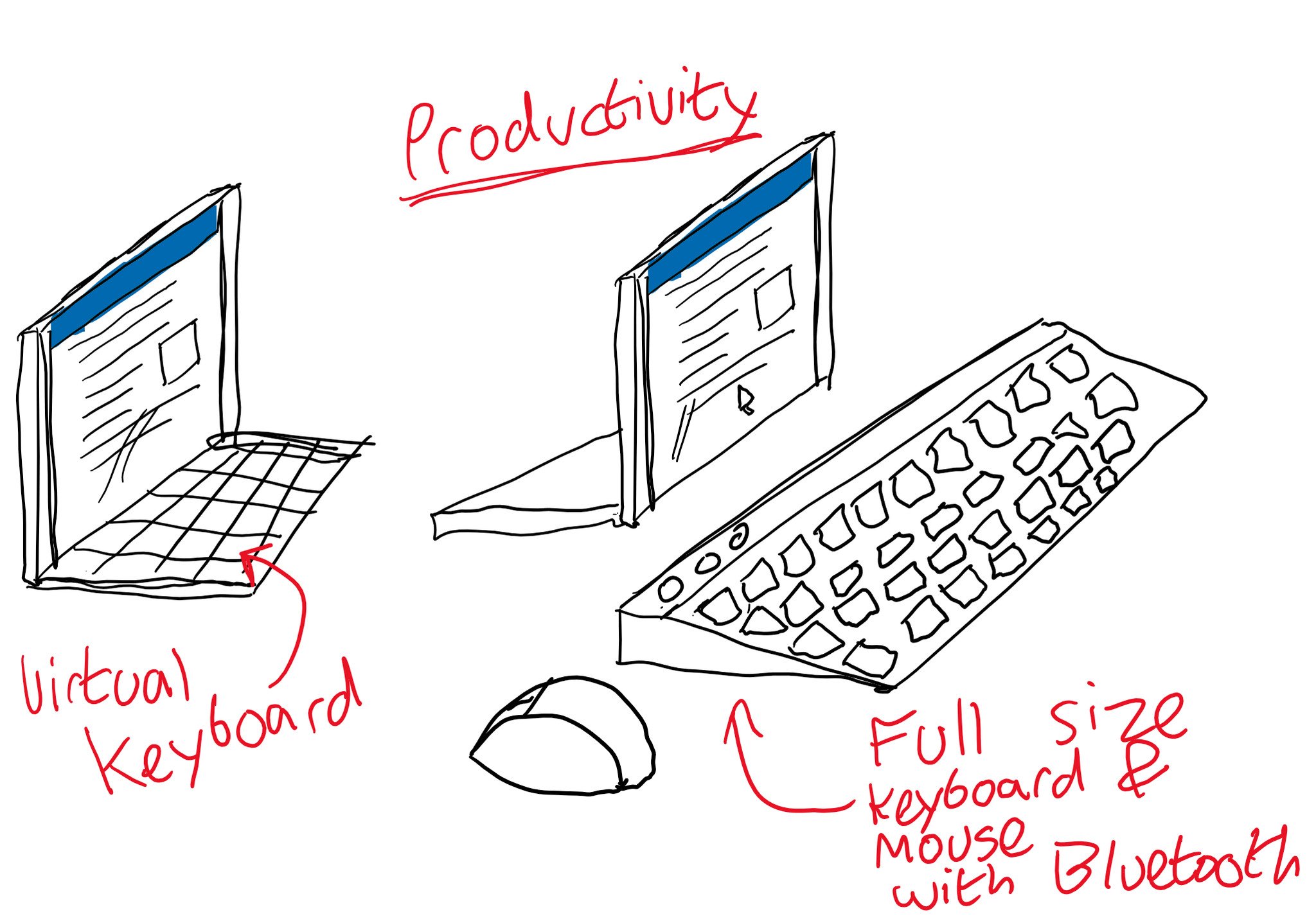
Naturally, any folding device from Microsoft would likely be aimed at prosumers first, who don't rely on all the hip and cool social apps that will likely never hit PWA or UWP. Don't expect your folding Surface to ever get Snapchat, and at this time, it's unlikely classic Windows Phone apps like WhatsApp will arrive either. Andromeda will likely be designed to accompany your phone, much like a smartwatch, iPad, or even laptop, using Microsoft's "Your Phone" app to keep you informed about happenings on your other devices.
I'm by no means suggesting you'll be able to fully replace your laptop with Andromeda, but envision scenarios where you might only need to do some light word processing, such as a university lecture, a press conference, or some kind of meeting where notetaking in OneNote might be more efficient than whipping out a huge laptop, or trying to awkwardly swipe-type on your phone.
Perhaps after the event, you find a desk and want to convert some handwritten notes and add more context in Word. Setting the phone at an angle could produce a laptop-like experience complete with a virtual keyboard, similarly to the dual-display Lenovo Yoga Book. You could even throw in a Bluetooth keyboard and mouse, similarly to how you're able to with Windows 10 Mobile, albeit with a built-in stand to keep it from falling over.
Get the Windows Central Newsletter
All the latest news, reviews, and guides for Windows and Xbox diehards.
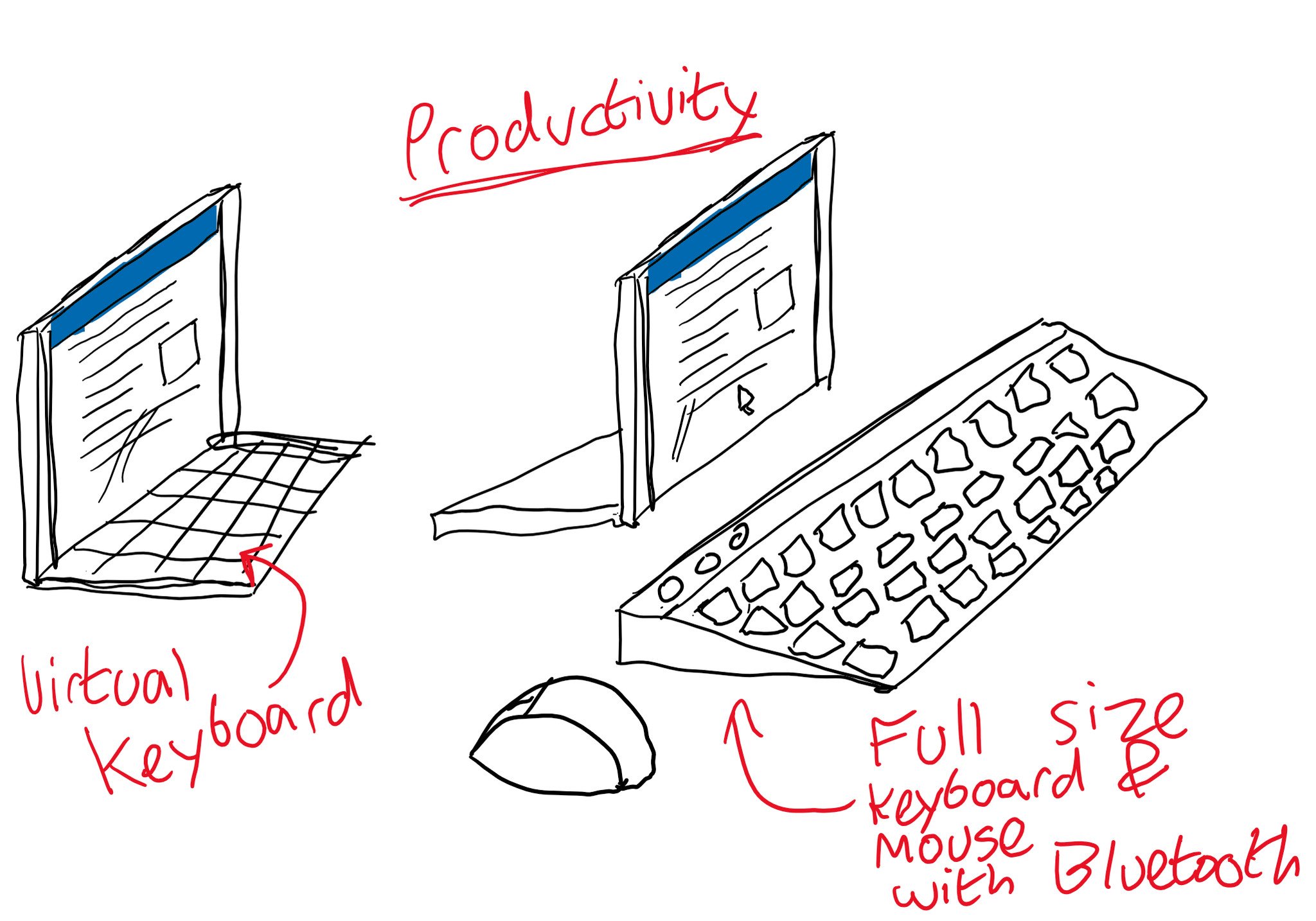
There are even more possibilities when you throw in (likely) Bluetooth capabilities. Perhaps you take those notes and want to do additional research, keep your word document on one side, and open an Edge browser on the next.
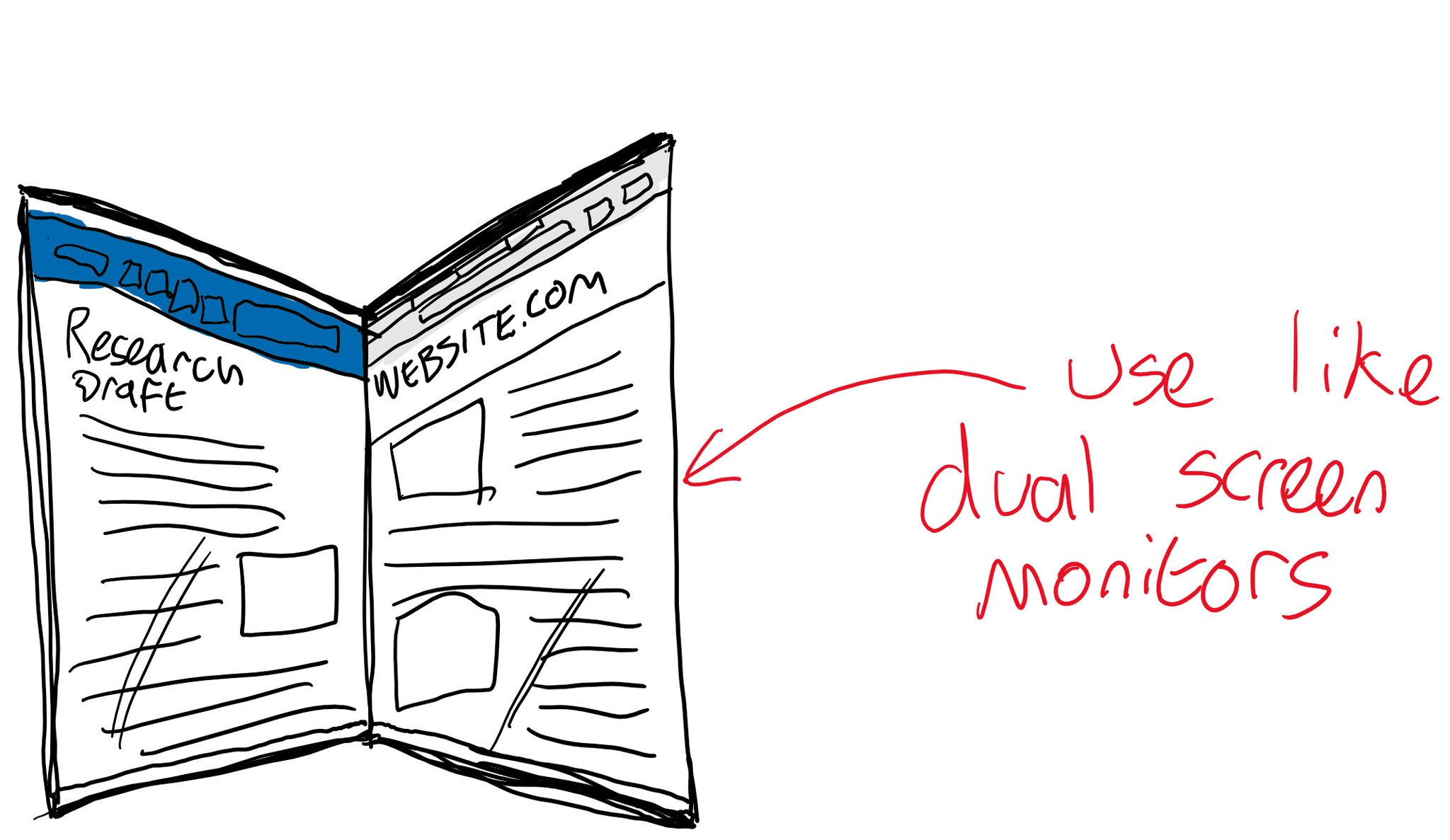
This isn't far removed from simply snapping apps on a laptop, of course. The difference being Andromeda could be something small enough to fold and slip into your pocket, while large enough to be truly productive in short bursts. It could theoretically straddle a niche that isn't quite tablet, phone, or laptop.
Leisure and gaming
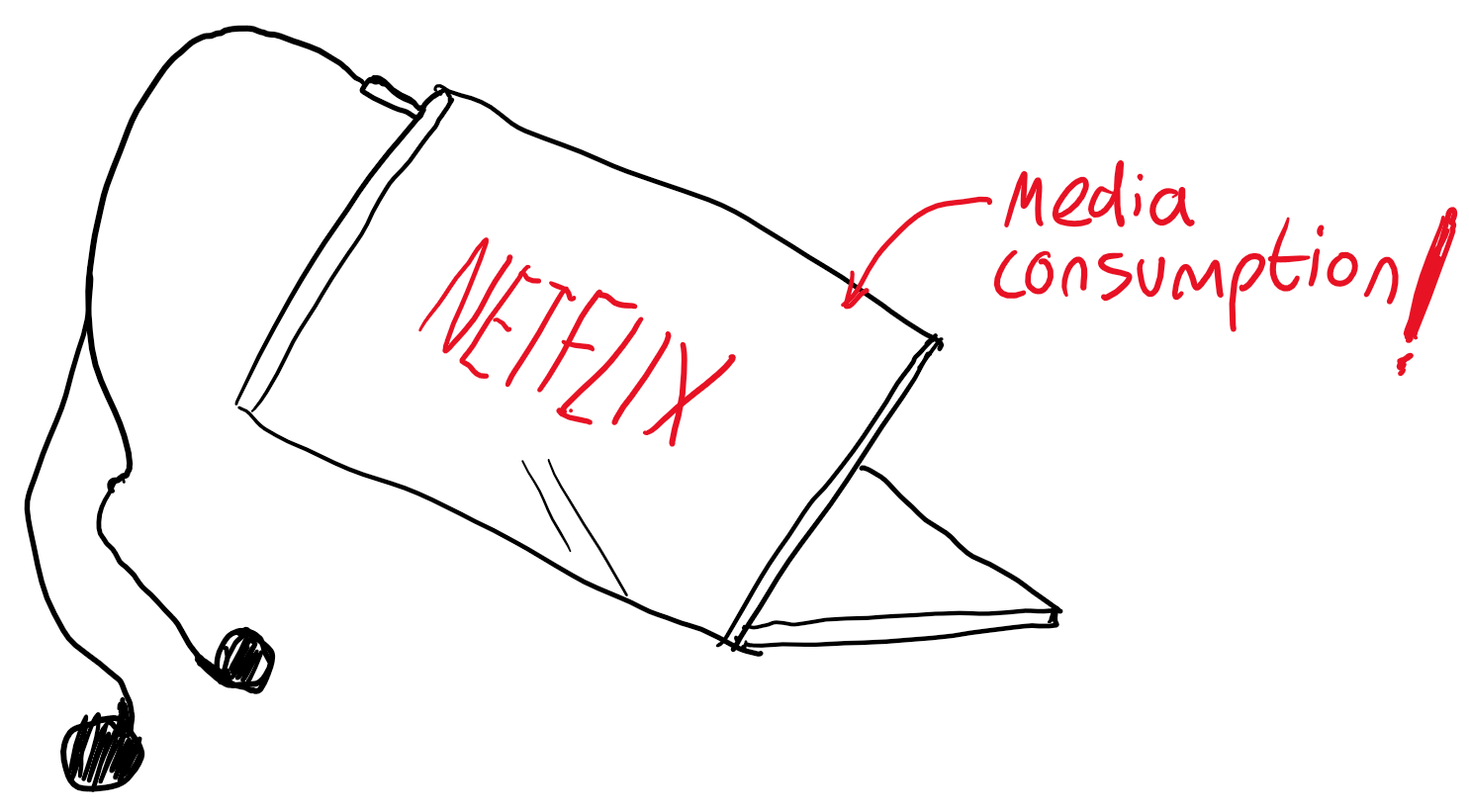
Sure, it's unlikely we'll ever see Snapchat on this thing (if indeed, this thing exists), but that doesn't mean you wouldn't be able to have fun on it. Any compatible UWP or PWA app will work on it just fine, scaling as necessary, much like they do on Windows 10 today.
Android phones can already pull off the dual-app thing, allowing you to watch a YouTube video while browsing side by side on your phone's display. But, at least theoretically, a dual-display Windows 10 device could take it a little bit further, processor withstanding.
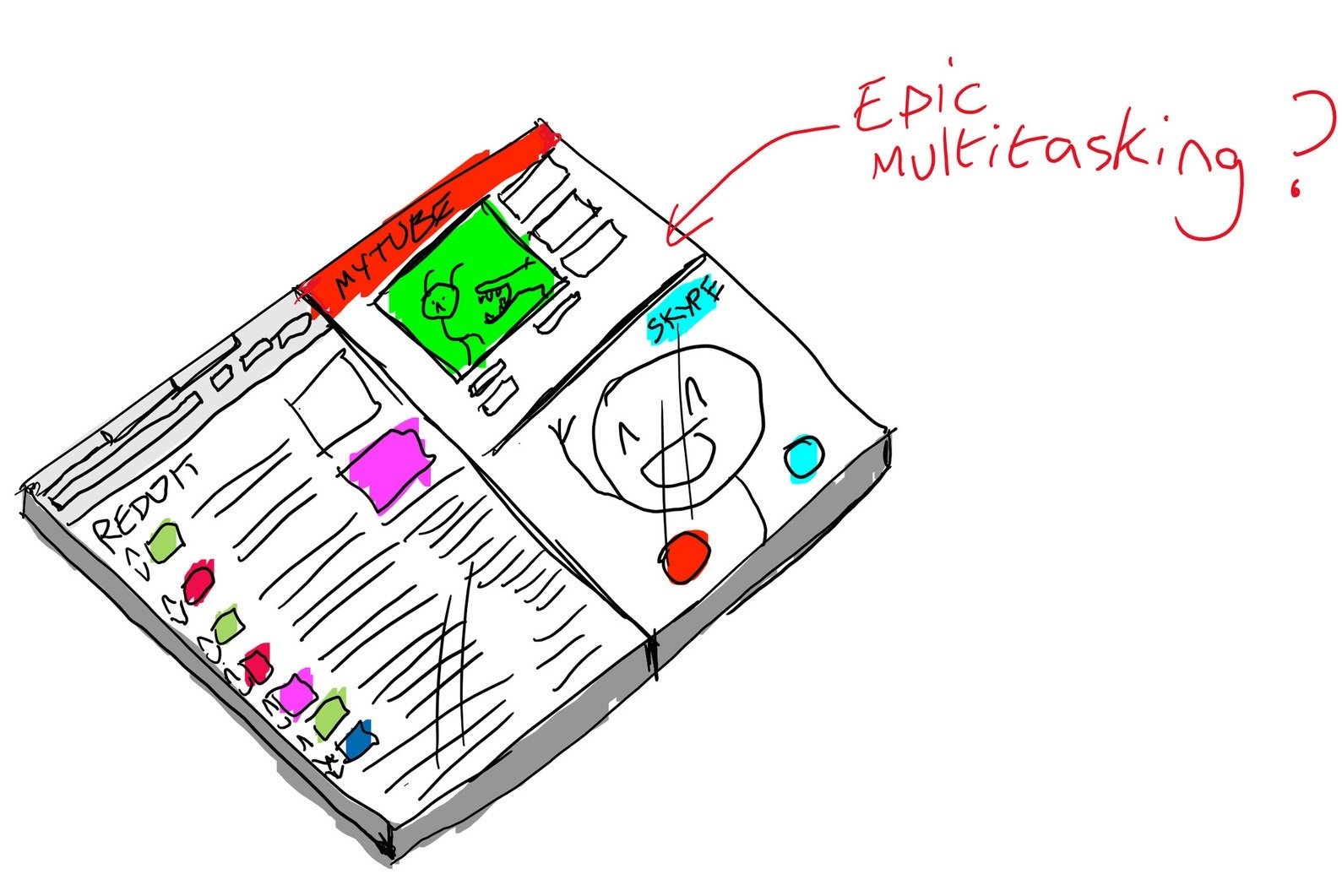
The hinge creates interesting scenarios for gaming, too. Especially in a world where Microsoft's Xbox team is actively exploring streaming full games from the cloud. One of the biggest issues to solve surrounding this will be control schemes. The Xbox controller's Bluetooth stack is not available on Android, but it will be available on any future Windows 10 tablet device, similarly to how it works on PC and Windows 10 Mobile. Fold the display into tent mode, and game on.
If you don't fancy taking your controller with you, however, perhaps Microsoft could leverage the second display to create a type of virtual software gamepad. While this wouldn't work particularly well for shooters (no triggers or bumpers), there are hundreds of slower-paced games that would work just fine using this touch method.
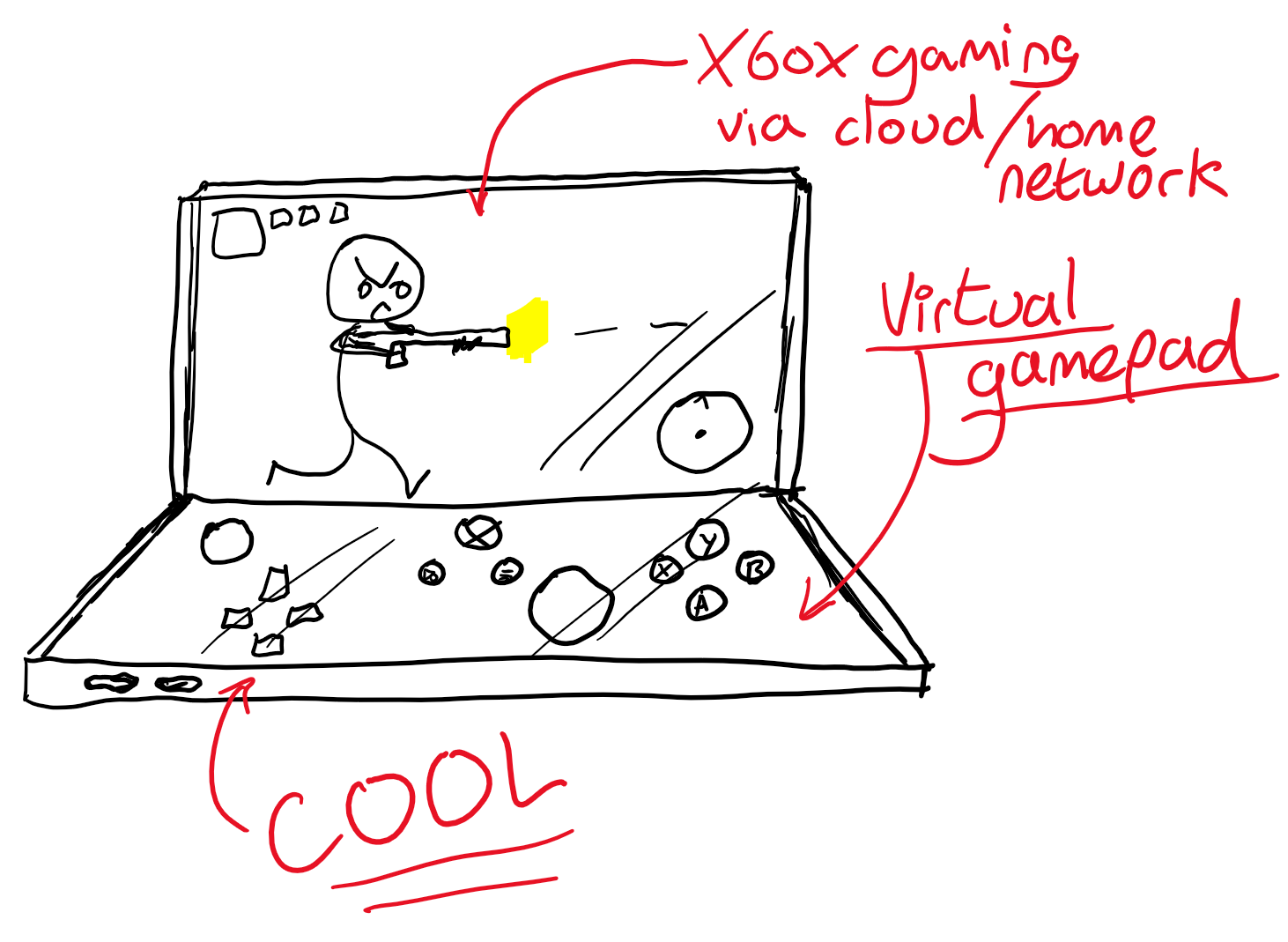
What do you think?
There are probably dozens of other interesting use cases the folding aspect of Andromeda could have to add to its uniqueness. Dual cameras could produce 3D scanning techniques as Microsoft has hinted at in the past, and Microsoft has been experimenting with all sorts of docking peripherals for folding displays.
There's a chance Andromeda will never see the light of day, but after the Surface Hub 2 reveal, I'm more hopeful than ever that Microsoft will take a chance to do something special, even if its potential audience remains niche. We'll just have to wait and see.

Jez Corden is the Executive Editor at Windows Central, focusing primarily on all things Xbox and gaming. Jez is known for breaking exclusive news and analysis as relates to the Microsoft ecosystem while being powered by tea. Follow on Twitter (X) and Threads, and listen to his XB2 Podcast, all about, you guessed it, Xbox!
